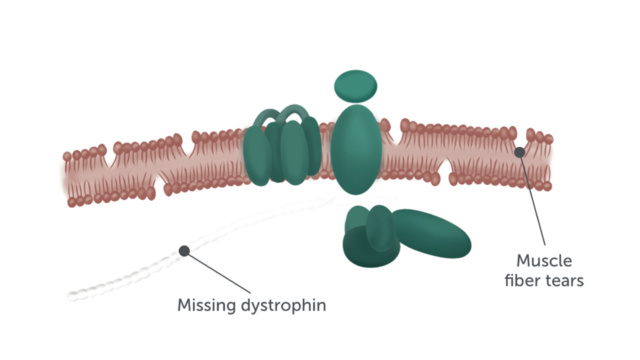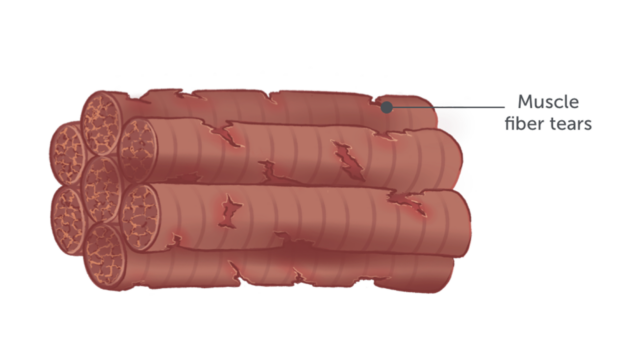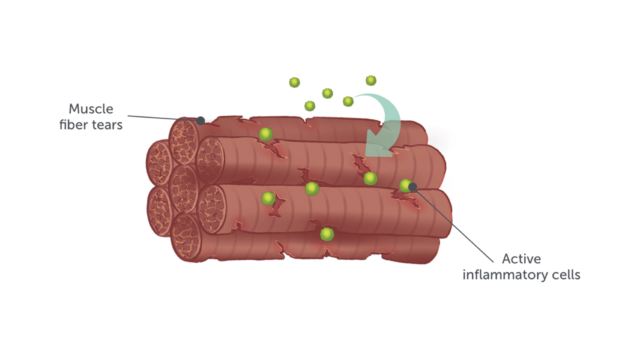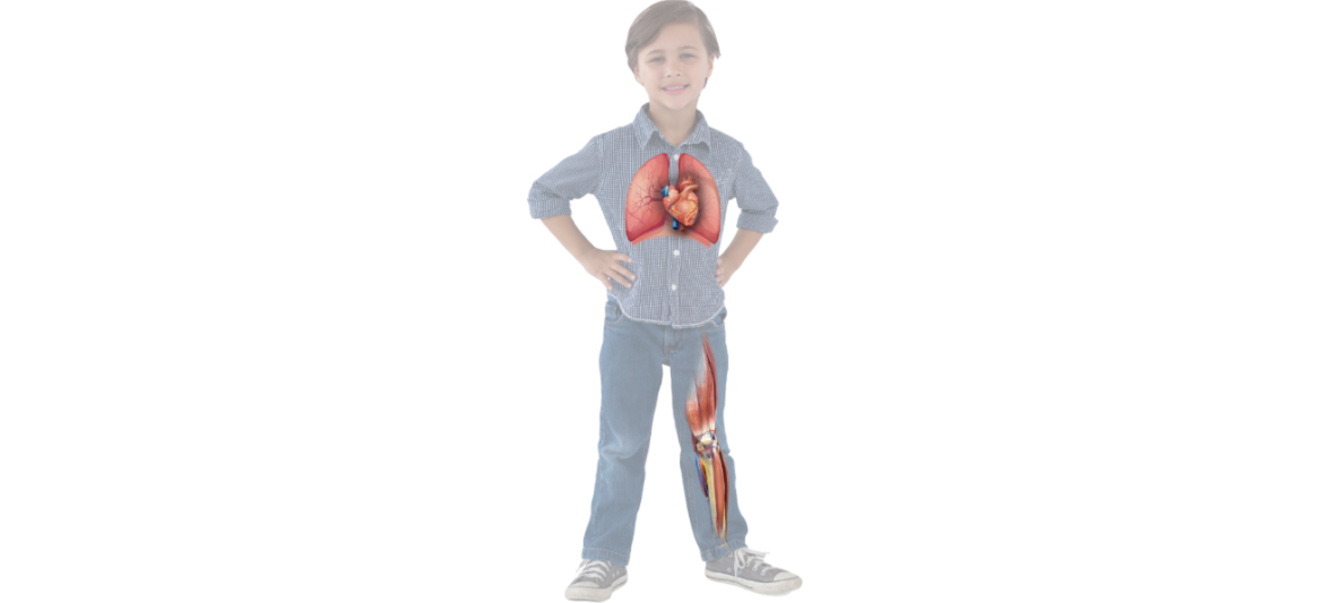About Duchenne Muscular Dystrophy (DMD)
What Is Duchenne Muscular Dystrophy (DMD)?
How Does DMD Cause Muscle Weakness?
- People living with DMD do not have enough dystrophin protein
- Dystrophin is necessary to strengthen and stabilize muscles to prevent damage during muscle contraction
- In people living with DMD, muscle damage also causes chronic inflammation, where inflammatory cells remain active in damaged muscles, causing even more muscle damage and muscle weakness over time
What Are the Symptoms of DMD?
All children living with DMD have muscle damage and muscle weakness that is progressive (gets worse over time)
Click on the highlighted areas to learn more.
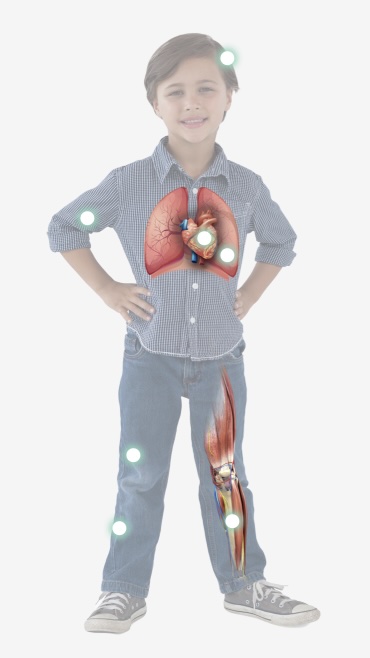
Role of Corticosteroids in DMD Treatment
Corticosteroids help to reduce inflammation, which slows the decline in muscle deterioration and disease progression
However, corticosteroids also have unwanted side effects that can limit their use in treatment
- These side effects may include behavior changes, growth delay, bone changes or fractures, cushingoid appearance (facial puffiness), weight gain, excessive hair growth, and cataracts
- Many of these side effects may make it necessary to modify or stop corticosteroid therapy
- >6 of 10 people with DMD who stop treatment with corticosteroids do so because of side effects
Side Effects of Long-Term Corticosteroid Use in People Living With DMD
Talk with your healthcare provider about any side effects experienced while taking corticosteroids
See what makes AGAMREE different and why it might be the right choice for your child
Watch an introductory video about AGAMREE, a novel corticosteroid for the treatment of DMD
